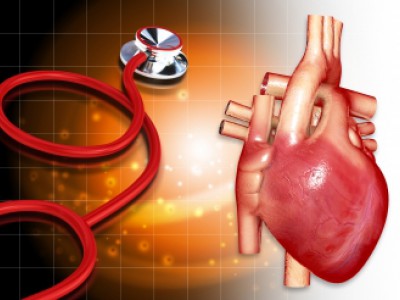Co-Enzyme Q10

What is Co-Enzyme Q10 and what its source?
Co - Enzyme Q10, also called Ubiqinone, was discovered in 1957 by Dr. Fred Crane. Coenzyme Q10 is vitamin-like, lipid molecule with a central role in various processes in the body. Usually the molecule of Q10 is produced naturally in our bodies, but with the aging process, or in certain other situations, the body needs to reinforce and supplement from an external source. Co - Enzyme Q10 found in food, especially in beef, sardines, anchovies, mackerel, salmon, broccoli, spinach and nuts, but its bioavailability is not high (less than - 10%), so in order to create a significant medical impact, especially in clinical situations, external supplement with its proper dosage is required.

What are the roles of Co -Enzyme Q10?
Coenzyme Q10 is similar in its structure to vitamin E, and together they are essential for two main processes occurring in the body: energy production in every cell in the body and preventing oxidative damage (anti - oxidant).
Q10 is an essential element in the creation of cellular energy. A product of Q10 is ATP - a molecule that responsible for supplying energy to the muscles and other vital functions occurring in the cell. This process occurs in a cell organelle called the mitochondrion.
Co - Enzyme Q10 is a powerful antioxidant that vital for energy creation in the body and protects against premature aging. Q10 is used as an antioxidant by protecting membranes of the cells, the mitochondrial and the DNA from free radicals and oxidant stress.
Unlike other fatty antioxidants, consumption of food and self production of Q10 in the body affect blood levels, and therefore its effect as antioxidant on cells and the bloodstream components as LDL, is more significant. And indeed studies have clearly shown that Q10 is a most potent antioxidant in the early stages of LDL oxidation. External addition of Q10 at a dose of 120 mg per day reduces the ability of LDL oxidation.
Likewise, the activity Q10 help repair DNA - by the appearance of repair enzymes. Generally, required several weeks of adding Q10 to reach a level where it starts to affect, but as soon as it achieved the protection effect may be long - term and may long several weeks after stopping the addition. This protective effect may be more significant in situations of illness.
The body needs a certain level of a Co-Enzyme Q10 in the blood for proper functioning. When the blood level is too low, there is increased vulnerability to disease and accelerated aging. Co - Enzyme Q10 supports almost any tissue that needs assistance or repair and is used to treat numerous serious degenerative diseases, including heart disease, hypertension, cancer, gum disease, diabetes, neurological disorders and even aging. In addition, Co - Enzyme Q10 helps rehabilitator sexual function, which was damaged as a result of disease or cardiac events.
Why there is a shortage of Co-Enzyme Q10 in our body?
It is known that the levels of Co - Enzyme Q10 decreases with age, especially after age 35. But this is not the only reason for the decline in its levels. Deficiency of Co - Enzyme Q10 may occur following the lack of other essential elements such as vitamins B, participants in the production process of Q10. Moreover, chronic diseases, poor nutrition and malnutrition can also lead to a deficiency of this vital element. Environmental and physical stressors (prolonged, intense physical activity and lifestyle), may reduce its levels in body tissues.
Co-Enzyme Q10 and different disease conditions
Congestive heart failure and Cardiac disease conditions - The main field that is researched on the subject of treatment with Q10 involves patients with Congestive heart failure (CHF). Heart muscle of patients with CHF demonstrates oxidative stress (a condition in which the amount of free radicals is higher than the amount of antioxidants) and low concentrations of Q10. This phenomenon may explain the defect in energy creation in the heart muscle, the dysfunction of the heart and the possible potential treatment these patients with Q10 supplements.
Heart muscle is the most active muscle in the human body. To functioning properly, it needs higher energy levels that reach all its cells. High and constant levels of coenzyme Q10 allow energy production in heart muscle cells and therefore are important for its proper operation. Studies have shown improvement in heart function, reducing the number of days of hospitalization and reduction in deaths due to use of Co-Enzyme Q10. Studies suggest that Co-Enzyme Q10 effective as a support for cardiac activity in following situations: after a myocardial infarction (heart attack), heart rhythm disorders.
Hypertension - A systematic review of eight studies involving different doses of Q10 to treat hypertension, found an average decrease of 16 mmHg in systolic blood pressure and 10 mm Hg diastolic blood pressure.
Migraine - Some studies have shown efficacy in reducing the frequency of migraine attacks but not in strength. Response rate (reduction of headaches by 50% or more) was 47.6% for the Q10 treated group compared with 14.4% in the control group.
Interaction with the Statins - Statins are considered the best pharmaceutical group in lowering total cholesterol, blood fats and reducing the risk of coronary heart disease. The drug causes an inhibition of Mevalonate, an essential ingredient in creating cholesterol and starting material to Q10 and therefore when taking Statins also falling levels of Q10. There is a hypothesis that there is a direct relationship between low levels of Q10 and myopathy (muscle damage), a well known phenomenon when taking Statins.
Neurological Diseases - Some studies have shown slowdown in deterioration in Parkinson's disease after administration of Q10, and the supplement was even offered as a protective drug for Parkinson's patients.
Co-Enzyme Q10 and physical activity
Deficiency on Q10 in athletes may be an expression of metabolic stress, in which there was an increase of free radicals levels during intense training. Thus there is an assumption that the external addition of Q10 may benefit healthy active people and not just ill people. Studies evaluating the potential of Q10 in athletes showed that the addition of Q10 at a dose of 100-60 mg daily for 8-4 weeks improves aerobic power, anaerobic threshold, workout capacity and followed by recovery in trained and untrained people.
New research shows that the addition of the rapidly melting Q10 is safe, effective and prolongs activity in healthy people. In this study, acute addition (one - time) caused an increase of Q10 levels in muscle and decrease in oxidative stress during training and after it. Chronic addition (for two weeks) of Q10 increased the plasma concentrations and showed a trend of lengthening the time to exhaustion. Another recent study also showed that Q10 supplementation reduces personal fatigue (measured - by a visual scale) following total activity load, and may prevent undesirable conditions caused by fatigues.

Are all Co-Enzyme Q10 supplements are the same?
Coenzyme Q10 is a lipid component that is not easily absorbed in our body. To make maximum absorption of coenzyme Q10 in the body and enjoy maximum effectiveness it is important to verify the following:
Active molecule must be within the lipid environment, for example, soft gel capsules. Lower efficiency noticed with capsules containing a dry powder (capsule or caplets) because of low absorption of Q10.
It is highly recommended that active molecule will consist on specific fatty carrier which tested and proven in scientific studies to be effective such as the crystal free carrier.
It is highly recommended to combine Q10 with vitamin E at the same supplement. Vitamin E protects and enhances the activity of Co-Enzyme Q10.
What is the recommended dosage for Co-Enzyme Q10?
Empirical cumulative research supports the constant use of Co-Enzyme Q10 at a dose of 30-100 mg per day. This dose provides the energy requirements of the heart muscle, allowing the prevention of oxidative damage in different tissues of the body. In any manner, the supplement cannot be harmful, and the excess is excreted from the body.
Contraindications, side effects and interactions of Co-Enzyme Q10
It is unknown about certain contraindications to Q10, although no reliable information on its use in pregnancy, breastfeeding or small children is available.
There are reports of mild discomfort in the digestive tract in less than 1% of patients in clinical trials.
There are also case reports of potential interactions with Warfarin (Coumadin). Because of the effects of hypoglycemia (lowering blood sugar) and blood pressure lowering potential of Q10, should perform monitoring, especially if you take concurrently prescription medications.
Should be noted that Co-Enzyme Q10 can cause enhanced alertness and therefore is not recommended to use it at bedtime.







